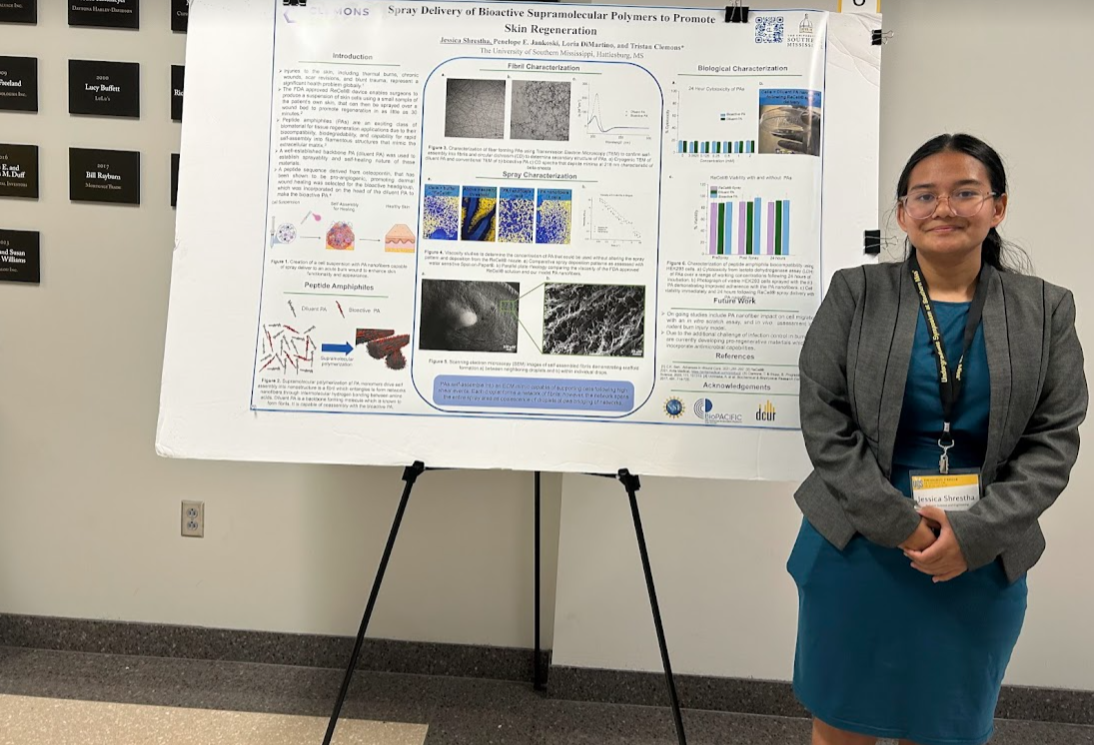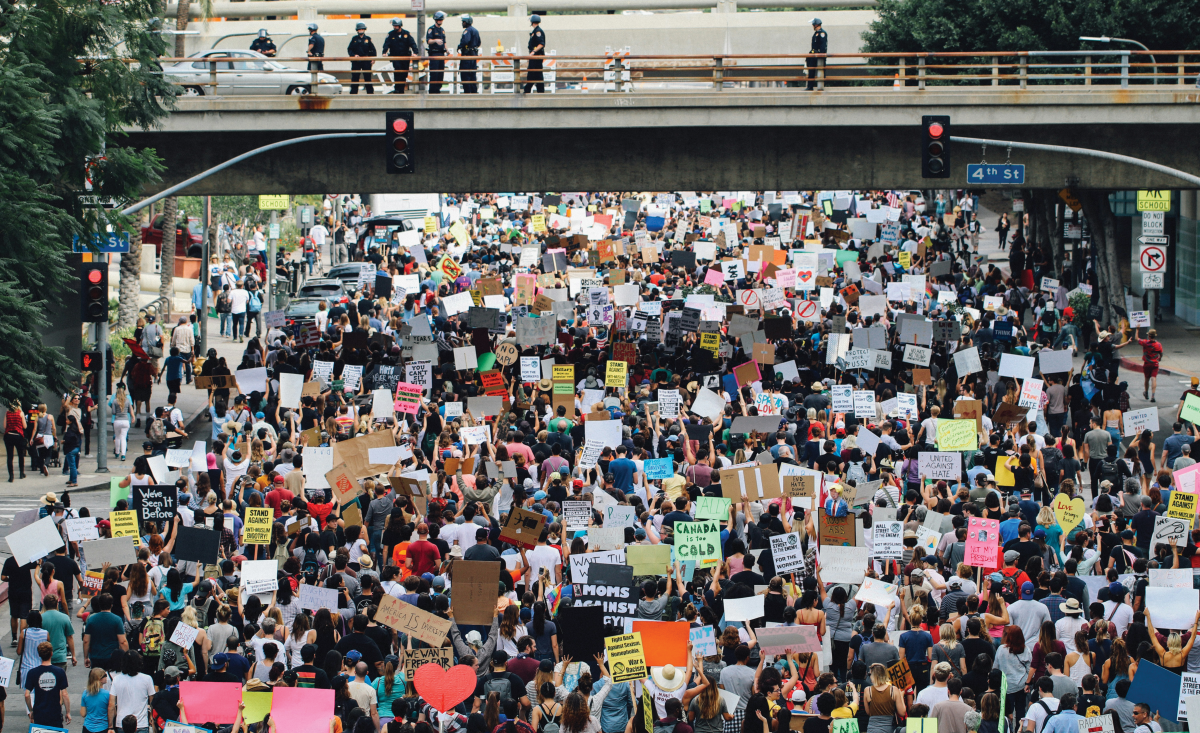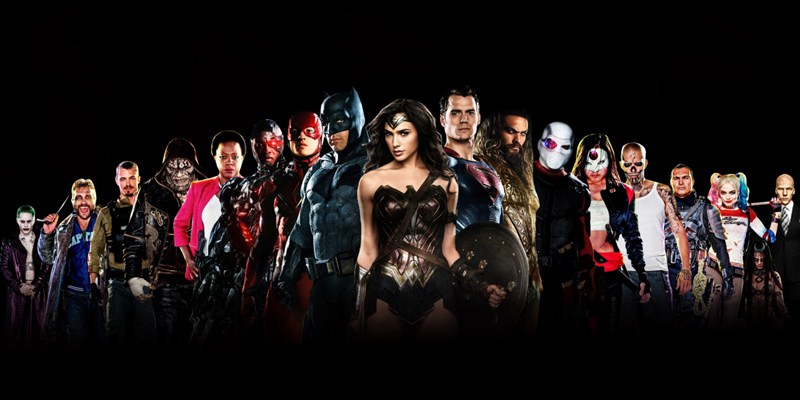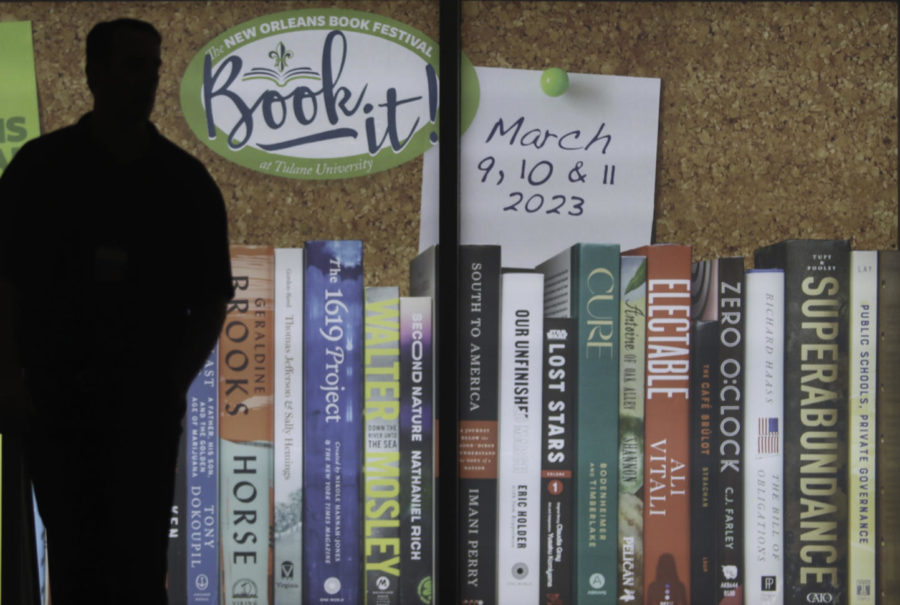With the steady, almost sudden rise of the Marvel Cinematic Universe, the ever-expanding blanket of outstanding superhero media has nevertheless reached virtually all corners of entertainment. Strictly talking about this particular genre in film and television, an internal debate on which is the better way to consume caped crusaders has only intensified with the massive array of original shows springing up on Netflix, the CW, Hulu and even Freeform. In this, I will discuss the particular strengths and weaknesses of superheroes on the big and small screens.
Last year’s cataclysmic cinematic event “Avengers: Infinity War” more than proves that this, more than ever, is the time for amazing superhero films that could only have been dreamed of by comic fans when they were imaginative children. Even following a decade of build-up, “Infinity War” delivered in every sense of the word, providing a satisfying, yet frustrating, part-one conclusion that millions of viewers had been waiting for. Despite the amount of universe-ripping battles, the MCU’s much smaller films, such as “Ant-Man and the Wasp,” follow a very similar pattern that has been heavily criticized yet work on a myriad of levels.
On a much lower scale in both production and story, superhero shows such as “The Umbrella Academy,” “Jessica Jones” and “The Runaways” all offer a strikingly different experience than their Hollywood-produced counterparts. While the blockbuster films clearly and heavily depend on flashy, meticulously-choreographed fight scenes with several moving parts and a dumbfounded amount of green screen usage, superhero shows tend to focus on the much more human elements that create and continue to shape our heroes. While this method of storytelling may be well-suited for religious bingers of television, this formula tends to bore the typical MCU movie-lover.
At just a glance, one can clearly see how the two forms of media differ at the most basic of levels. While the MCU and DC Extended Universe lack really any personality and depth that can only be experienced through several hour-long episodes, Netflix and Hulu originals tend to become caught up in extending stories into 12-episode arcs that more than likely drag near the tail end of the season. However, in finding their respective audiences, both film and television productions capitalize on their strengths, expertly reusing the formula that every film or show has used before it.
Particularly focusing on a personal favorite of mine, “Spider-Man: Homecoming,” one can pretty much guess exactly what may happen throughout the film, beat-by-beat. Skipping the tired origin story, Peter Parker struggles with fitting in at school due to his double life as a superhero, but when a villain threatens both of his identities, Peter must come to accept both halves of himself to save the day. This outline can pretty much be placed onto almost any MCU or DCEU film, and yet they remain so immensely popular because of the many aspects they do well.
For this argument, I’ll focus on the writer’s ability to construct a seemingly distinct “save-the-day” narrative through tweaking the formula ever so slightly. What makes “Homecoming” such a delightful film is its ability to bring humanity to Peter and his friends, making viewers care about his various plights. While facing the villain of the week, Peter also has to take MJ to the prom but also prove himself to Mr. Stark, as any teenager with superpowers would want to. Rather than creating a blank canvas for viewers to implant themselves onto, as many different forms of superhero media tend to do, “Homecoming” provides those interesting, loveable characters that viewers can enjoy for two hours and want to spend many more seeing future viewings. Placing this on a backdrop of flips, dives and occasional web-shooting, the MCU truly finds a delicate formula to keep viewers entertained when the hero is both in and out of his or her suit.
Seeing the success of such huge films, superhero shows tend to take a slice of the “humanity” aspect and completely do away with the rest. I have yet to encounter a superhero show by which I was so completely dazzled by special effects when the characters would shoot lasers or reduce a building to rubble in one punch. On the contrary, I was quite disappointed in Hulu’s “The Runaways” when the one character who can fire beams looked utterly disgusting and artificial. Showrunners understand their budget, and they understand their audience.
There’s a good reason that heroes such as Jessica Jones, Luke Cage, Iron Fist and Daredevil are the ones who get television shows rather than someone like Captain Marvel. Clearly these shows are not given as huge a budget as the typical MCU film, and playing to their strengths, showrunners and writers exorbitantly expand on heroes’ humanity and increase the gritty angst that Batman is iconic for.
On the flip side of this equation, though widely successful and popular in its own right, the DCEU ultimately continues to fail in pleasing viewers because of its writers inserting too much grit into the films. Unlike the CW shows that demonstrate the more light-hearted, bright spandex costumes of DC, the DCEU attempts to replicate the success that the “Dark Knight” cinematic series saw. In this, the company did away with any sort of fun and human characteristics and replaced this with brooding, unlikable characters with boring or unbelievable story arcs.
Again, focusing particularly on “Jessica Jones,” I can easily say that this show represents the very essence of a fantastic superhero show. While there are definitely episodes that are slower and less interesting than others, the sheer anguish that Jessica is forced to confront throughout season one is completely unapparelled to any similar show I’ve seen. The writers know exactly in which areas to ramp up any internal conflict Jessica feels, dragging the viewer along for this emotionally fluctuating ride.
Unsuccessful shows such as “Inhumans,” a rare miss for Marvel, offered little in terms of both characterization and compelling storyline. Awful special effects and campy fight sequences aside, “Inhumans” essentially attempted to pull off what the MCU accomplished with “Avengers.” “Inhumans” introduced several characters all a part of one team and separated them within the first few episodes, not allowing any actual believable connection to form between characters and provided very little to interest viewers. Instead, the show attempts to lean on horrifying special effects and boring, inconsequential battles rather than do what other low-budget superheroes shows strived to accomplish.
As stated earlier, rather than focusing on any sort of high-budget flashy stunts, Jessica tends to punch her way out of any situation, never bending in the face of any sort of menace. Rather than utilizing battles in space to reel in the viewer, Netflix originals and the sort tend to solely lean on dialogue between characters and the criminally flawed traits of villains and heroes to draw parallels between a life of crime and crime-fighting. Shows do away with the “light vs. dark” mentality and enter the much more obscure realm of “what is right?” and “what truly makes a hero?”
photo courtesy ComiConverse






























